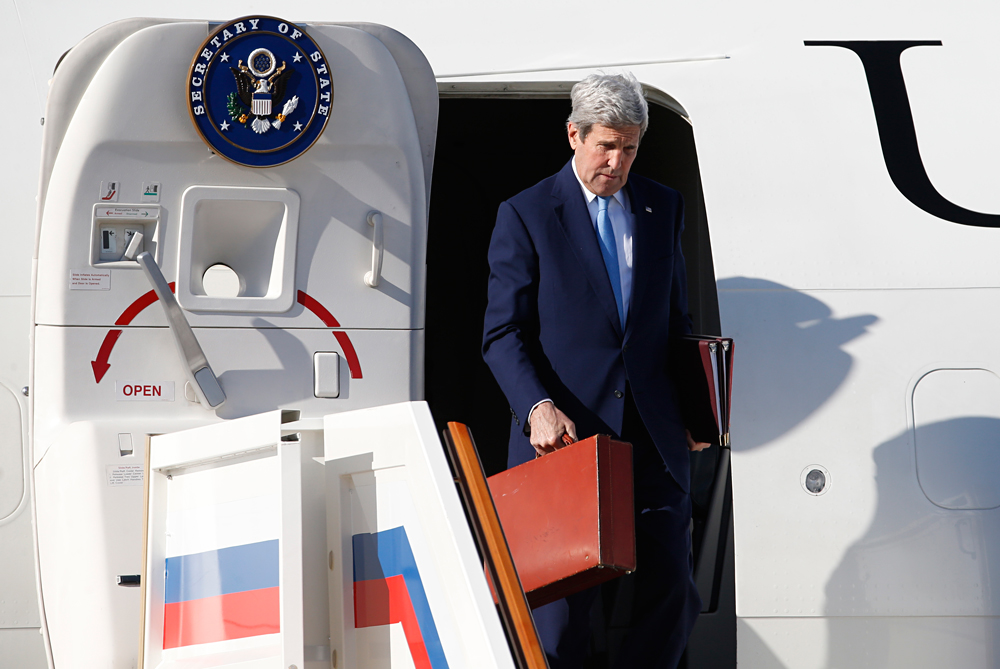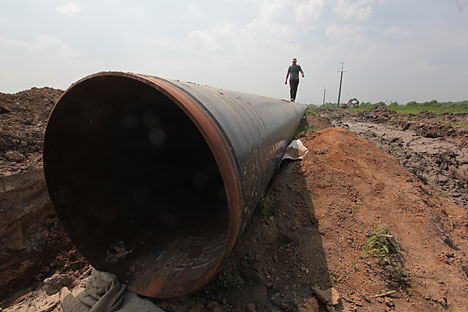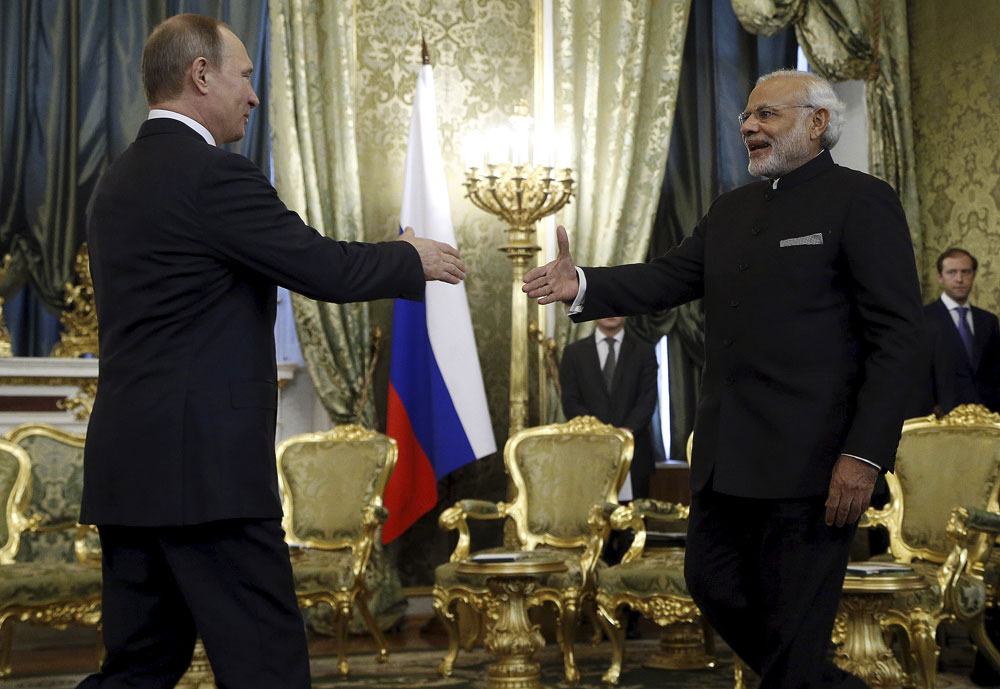How the U.S. policy in Central Asia affects Russia

US Secretary of State John Kerry upon his arrival at Moscow's Vnukovo-II airport, Russia, 23 March 2016. Kerry arrived in Moscow to meet with his Russian counterpart Sergei Lavrov and Russian President Vladimir Putin.
EPACentral Asia once again could become the focus of growing attention from the United States and its European allies. At the July NATO summit in Warsaw, the alliance reaffirmed its support for the current government in Afghanistan, a nation that continues to be a potential source of instability in the region, a magnet for radical Islamists and a crucial link to Central Asia.
It’s clear that both the U.S. and NATO are paying attention to the potential security risks and reacting accordingly. At the same time, Moscow is also keeping its eye on developments in Central Asia, given that the former Soviet republics have rather long and porous borders with Afghanistan. For Russia, it means that the chances of terrorists infiltrating into its territory through these former Soviet republics are greatly increasing.According to Dmitri Trenin, the director of the Carnegie Moscow Center, Russia doesn’t yet fully understand what is going on in Central Asia and that makes it vulnerable.
“Keep in mind that Afghanistan borders former Soviet republics, which are going through a very difficult period of time: We don’t actually know what is happening there beneath the surface [in Central Asia],” Trenin said in an interview with Russia Direct.
“The recent shooting in the city of Aktobe in Kazakhstan in June is a warning sign, given it is very close to the Russian border,” he clarified. “What will happen there in the future we don’t really know, because we are living in another reality, we are thinking in the categories of the Soviet past in our perception of what is going on in Central Asia. In fact, we don’t know this region well.”
According to Trenin, security problems could emerge very soon, taking into account the fact that Russia doesn’t have a well-protected border with Central Asian countries. Meanwhile, the U.S. is trying to keep a close eye on the events that are taking place in Central Asia beneath the surface. But will the U.S. succeed amidst confrontation with the key regional stakeholder – Russia?Some experts are concerned that the new U.S. policy is aimed at decreasing Russian influence in the region. They view any calls upon the Central Asian countries to “choose its pole, either siding with Russia or the West” as potentially destabilizing.
Some even voice the opinion that the Americans are planning to stay in Central Asia for a long period of time and have a definitive long-term strategy in the region. Yet the reality shows that revitalization of the U.S. foreign policy in Central Asia was contextual and strictly limited in time, meaning the U.S. presence in the region would decrease thereafter.For a long time Washington attempted to combine two approaches: promoting democratic values and attempting to establish cooperation in the field of security with the key countries in the region.
Nevertheless, the U.S. focus on human rights and its desire to impose a democratic agenda hindered the implementation of security initiatives. Washington encountered a serious lack of understanding on the part of the Central Asian states - they made it clear to the United States that they would not have difficulties finding another strong partner in the region, probably hinting at Russia.
That is precisely why today it is in the interest of the United States to change its approaches to Central Asia, since a greater priority should be given to security matters as opposed to human rights.If, over a medium- and long-term perspective, the United States and the five countries of the region are not able to develop their relations according to the new format and human rights remain a major stumbling block, Washington will cede its place to other regional actors – Russia or China.
The most important thing for the United States to remember is not to compete with Russia in Central Asia, as this region should not turn into an arena for competition, but rather, become a ground for cooperation. It would be virtually impossible to build an alliance of Central Asian countries based on opposition to Russia. Countries of the region themselves would hardly be willing to do so.
The writer is a political analyst. His research interests include reforms of the socio-political and economic systems in the post-Soviet space and U.S.-Russia relations after the end of the Cold War.
Views expressed in this article are personal.
This is an abridged version of an article, first published by Russia Direct
All rights reserved by Rossiyskaya Gazeta.
Subscribe
to our newsletter!
Get the week's best stories straight to your inbox

